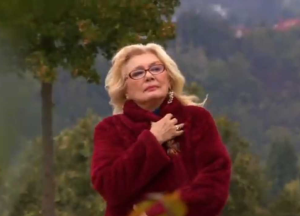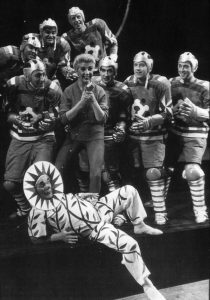Podcast: Play in new window | Download (Duration: 1:25:21 — 103.4MB) | Embed
Subscribe: Spotify | TuneIn | RSS | More
Today’s episode, “Anna Moffo und die leichte Muse,” continues the delicious theme of opera singers “letting down their hair” begun with “Hadley in Wien,” and it also forms a complement and a supplement to the “Anna Moffo Reappraised” episode that I published exactly two years ago. Anna Moffo’s recording career divides into three separate eras and markets: Italy in the late 1950s and early 1960s; which overlapped with the US in the 1960s; and finally Germany in the 1970s and beyond. Each of these eras in the Moffo career was represented on disc in different ways: jazz arrangements of standards from the Great American Songbook in her earliest (and rarest) Italian recordings, followed by breathy Italian pop songs (some even composed by Moffo herself); early twentieth century Broadway operettas and MGM movie musicals in the US when her voice was at its peak; and Viennese operetta for the German-speaking market, as her vocal instrument became more fragile, while it still represented her finest work of that period. Each of these eras and genres is thoroughly explored in this episode. She is partnered in all of this repertoire by some impressive co-stars: Sergio Franchi, René Kollo, Rudolf Schock, and Robert Merrill as duet partners, with musical direction by Ennio Morricone, Henri René, Lehman Engel, and Skitch Henderson. Recordings range from 1960 through 1983, with the vast majority coming from the 1960s. In spite of the vocal and technical frailty displayed in the later recordings, Moffo’s ability to communicate in this repertoire never flagged. And of course throughout her entire career, no singer so consistently presented a more striking image of vocal and physical glamour than did Anna Moffo.
Countermelody is a podcast devoted to the glory and the power of the human voice raised in song. Singer and vocal aficionado Daniel Gundlach explores great singers of the past and present focusing in particular on those who are less well-remembered today than they should be. Daniel’s lifetime in music as a professional countertenor, pianist, vocal coach, voice teacher, and journalist yields an exciting array of anecdotes, impressions, and “inside stories.” At Countermelody’s core is the celebration of great singers of all stripes, their instruments, and the connection they make to the words they sing. By clicking on the following link (https://linktr.ee/CountermelodyPodcast) you can find the dedicated Countermelody website which contains additional content including artist photos and episode setlists. The link will also take you to Countermelody’s Patreon page, where you can pledge your monthly or yearly support at whatever level you can afford.





